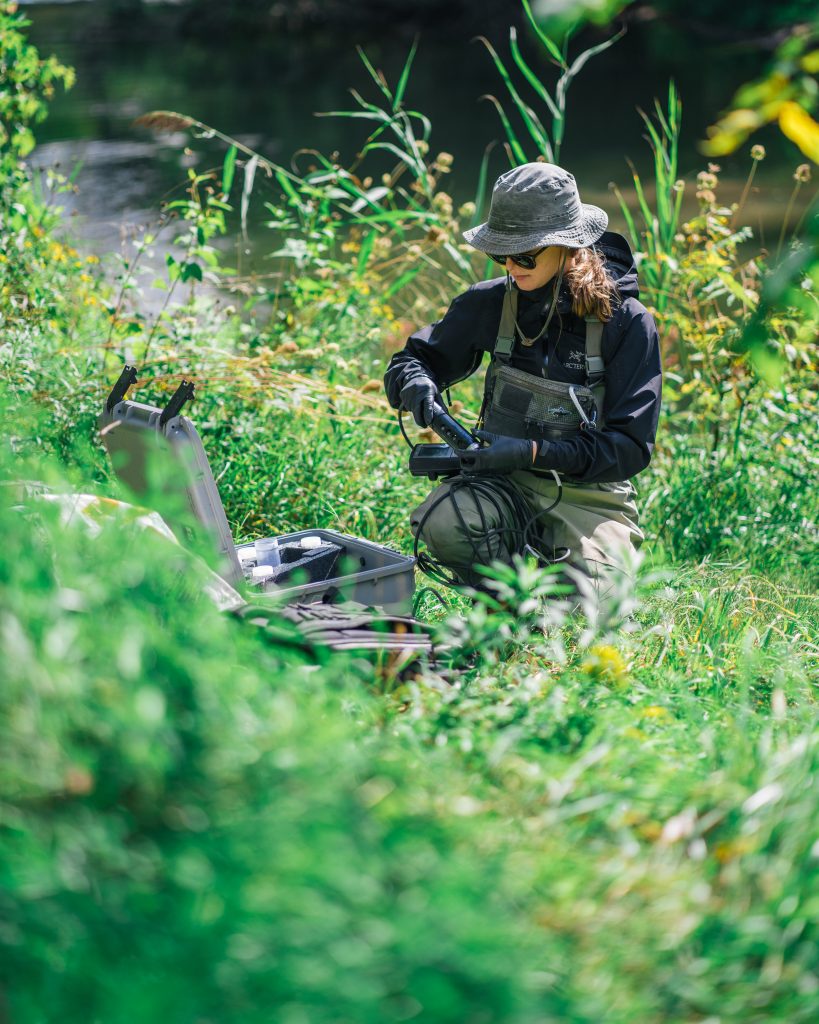UW, Laurier, University of Guelph make Canada’s list of top 50 research universities

Posted Dec 7, 2023 03:45:42 PM.
Last Updated Dec 7, 2023 04:08:27 PM.
The University of Waterloo, Wilfrid Laurier University, and the University of Guelph ranked as some of the top research universities in Canada this week. The universities were recognized for their ongoing research work that helps make global impacts.
The top 50 list of Canadian research universities is put out every year by a company called Research Infosource Inc., which is recognized as a leading source of ranking information on research universities as well as hospitals and colleges.
The University of Waterloo came in 14 on the list of Canada’s top 50 research universities for 2023, with the University of Guelph coming in at 18 on the list. Wilfrid Laurier University was further down the list, sitting at number 38. The University of Toronto was first on the list.
The University of Waterloo was designated ‘Research University of the Year’ in the comprehensive category, a subsection of the top 50 list, with University of Guelph coming in second. This is the 16 straight year University of Waterloo has taken the first-place spot on the comprehensive list of Canadian universities. The University of Guelph has been second in that category for 9 straight years. The comprehensive list includes universities that don’t offer medical school.
The University of Waterloo’s research boosted them to the top spots for research income and corporate research income in the comprehensive category, and then second for not-for-profit research income.
The interim Vice President of Research for the University of Guelph, Dr. Rene Van Acker, said being a research leader and ranking on the list is important to a university’s global standing. It helps them retain new students and faculty who are interested in the research the university is doing.
“When students and faculty are hired here the expectation and their expectation is that research will be part of what they do,” said Van Acker.
“It takes hard work every day to achieve these kinds of rankings and that’s hard work by everybody in that system, that’s our students, our faculty, our staff, and our partners. It’s all of us working together.”
Van Acker added that research universities like theirs have long-standing partnerships that help with funding.
“We have long traditions in research, in fact, the agriculture college for example turns 150-years-old next year so there’s very long traditions and there’s been research in those founding institutions ever since they’ve been founded,” said Van Acker.

“We have some special relationships, we have a long-standing agreement with the Ontario Ministry of Agriculture, Food and Rural Affairs that includes in it some funding for and mandates for research in agriculture, food, and veterinary medicine that’s built into the University of Guelph,” he added.
The University of Guelph runs numerous research stations throughout Ontario that are owned by the province.
“The largest undergraduate club on campus is something called the ‘Student Research Network’, it has over 800 members of undergraduate students who are interested in or somehow participating in research,” said Van Acker.
Each year, Research InfoSource Inc. publishes Canada’s list of top 50 research universities. This year the report stated that funding for university research has declined. They report that funds from the federal government have dropped by close to 6.6 per cent. In the FY2022 report, they state that 24 Canadian universities recorded gains in research income and 26 recorded a drop in research income. In comparison to FY2021, 45 universities recorded growth in research income and only 5 recorded a drop.
In March of this year, reinvestments into university research were declined for the federal budget, even after the federal government’s own advisory panel on the Federal Research Support System told them significant funding increases are needed.








